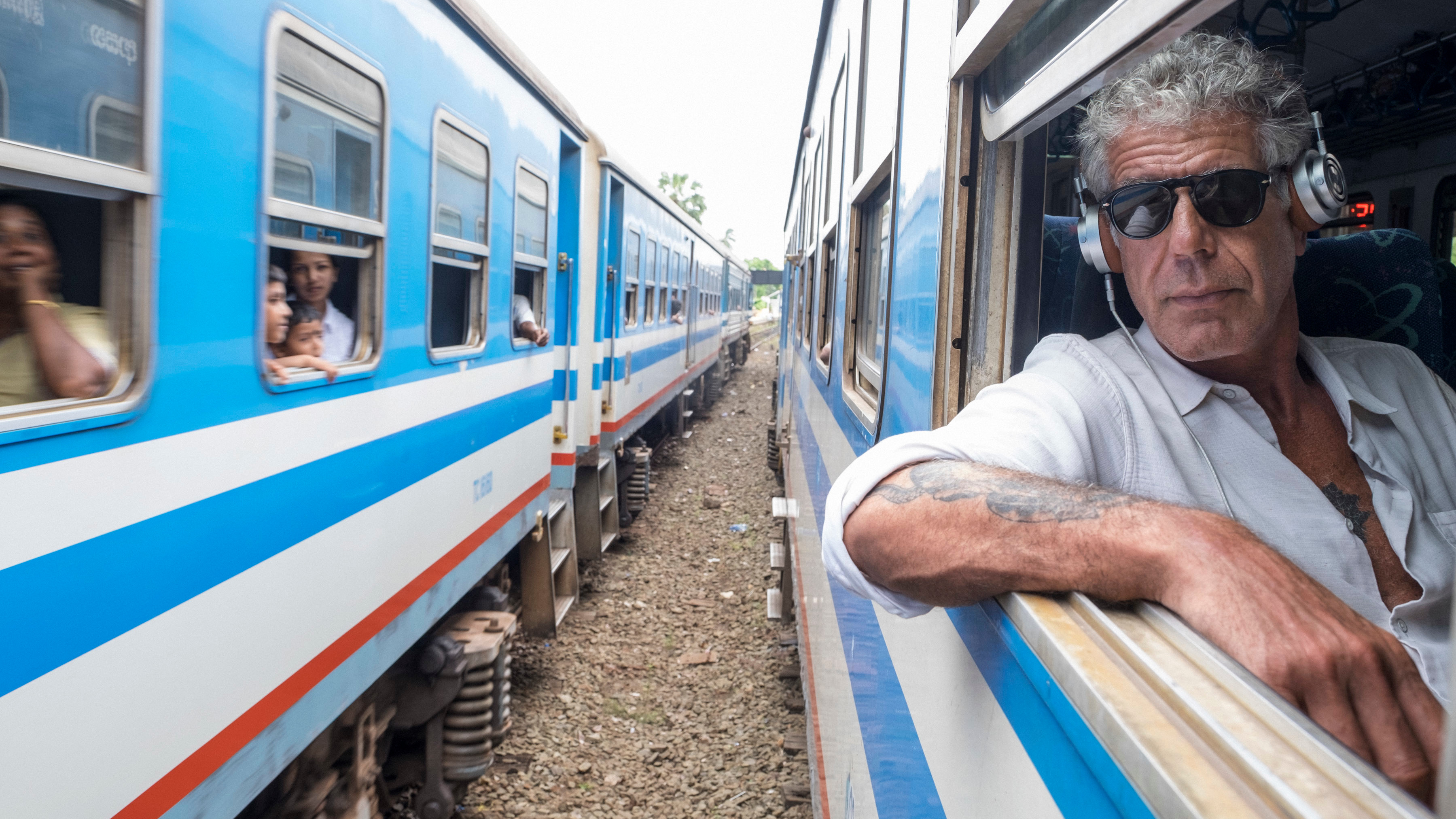What Anthony Bourdain Gave Us, And What He Left Us
We may receive a commission on purchases made from links.
As I'm typing these words there are a hundred others doing the same, penning remembrances and think-pieces of Anthony Bourdain, who was found dead in a French hotel room Friday. I'm having trouble coalescing my thoughts into a tidy piece with a beginning-middle-end. Mostly it's just fucking sad, given how lovingly he wrote and spoke about his daughter when I interviewed him in 2016. I have a 2-year-old son now. This morning, for the first time, he nuzzled up next to me on the couch and said, unprompted, "Love you daddy." I can't even comprehend.
I've had three interactions with Tony (this is not me being chummy, that's just how everyone refers him). The first was in the basement of the Chicago Theater, after he had just performed his one-man speaking show for a sold-out crowd. It was pleasant, cordial, and not particularly noteworthy. The third time (I'll circle back to interaction no. 2) was my 2016 interview about his cookbook, Appetites. He was in a particularly spry mood, I remember.
My longest interaction with him was in 2011. I had this thought of starting a podcast about the craft of writing and interviewing writers I admired. While everyone loved Kitchen Confidential for its salacious tales, I was drawn to that book for the prose. Consider the era of food writing: The medium where most appeared in 2000 was newspapers, which was very much recipe-driven, staid, and employed flowery decadent-velvety-mouthfeel clichés. Tony's writing had kinetic energy, it had rhythm, it made me laugh out loud. It lacked artifice and bullshit. This was the opening paragraph to his 1999 The New Yorker story, "Don't Eat Before Reading This," which earned him his book deal for Kitchen Confidential:
I was like a young Cameron Crowe reading Lester Bangs for the first time, feeling the same jolt of electricity shot down the spine.
I obtained Tony's personal e-mail from a colleague, sent him a note, and told "Mr. Bourdain" how much his writing meant to me. I asked if he would talk to me about his writing process, and if I could record this conversation. Within minutes, Tony replied yes. We spoke for an hour and he became the podcast's kickoff guest. I remember him talking about not laboring over sentences and reading George Orwell for inspiration. Some of the lessons he offered about the writing craft I still use today. (If I had to recommend one of his book, it's The Nasty Bits, a sharp collection of essays from his travels.)
Two more thoughts about Tony's legacy, which I'll keep brief because others will say far more eloquently: No person in the history of television has created a better show about food, travel, and culture. Full stop, retire the trophy. Those with aspirations about traveling the world and eating on camera—why even bother after Anthony Bourdain? Tony's love of film imbued his shows: The Rome episode of No Reservations was an homage to Federico Fellini, shot entirely in black-and-white with the driving scenes shot on a green screen. He didn't make a television food show, he made the television food show.
Lastly: What of his legacy? What lessons do we takeaway from his 61 years on earth? A number of people on social media have written today about how Anthony Bourdain inspired them to travel, to expand their horizons, to step out of their comfort zones, maybe try a new dish they would've never considered. Since we're all more comfortable inside our silos, to convince thousands of total strangers to introduce some discomfort into their lives—and then reaping those rewards of new discoveries and experiences—now that's a life worth lived.
As for myself, I'm saving the chicken I planned on roasting tonight for tomorrow. In Tony Bourdain's honor, I'm dining out at our favorite pho restaurant, owned by an immigrant Vietnamese family, the one with their kids quietly doing homework at a back table.
